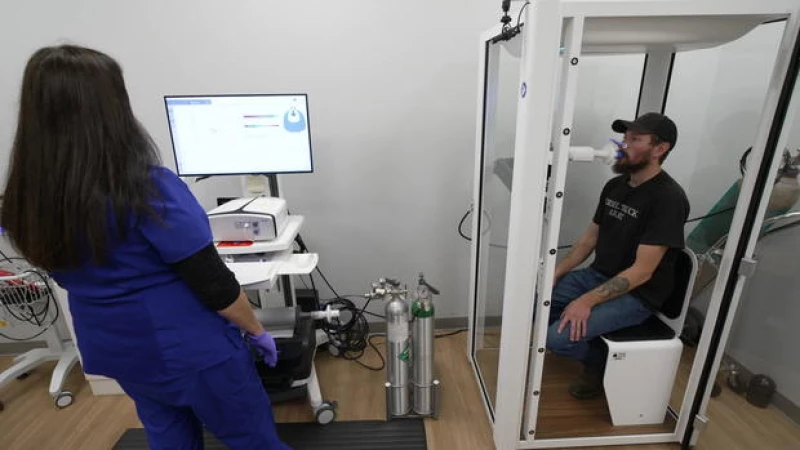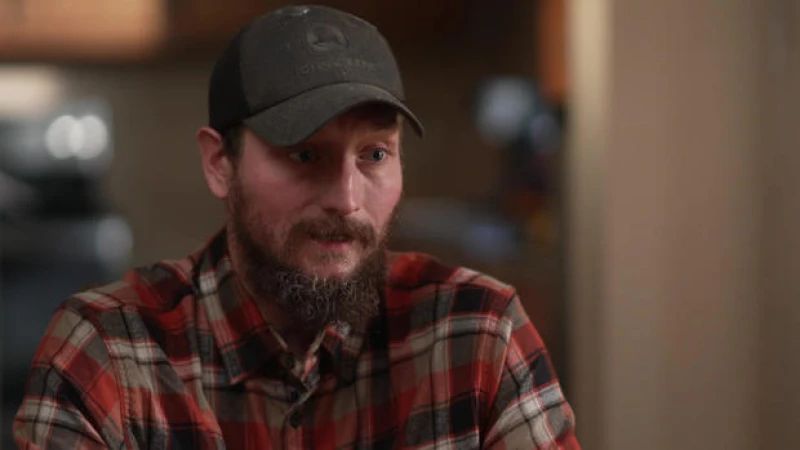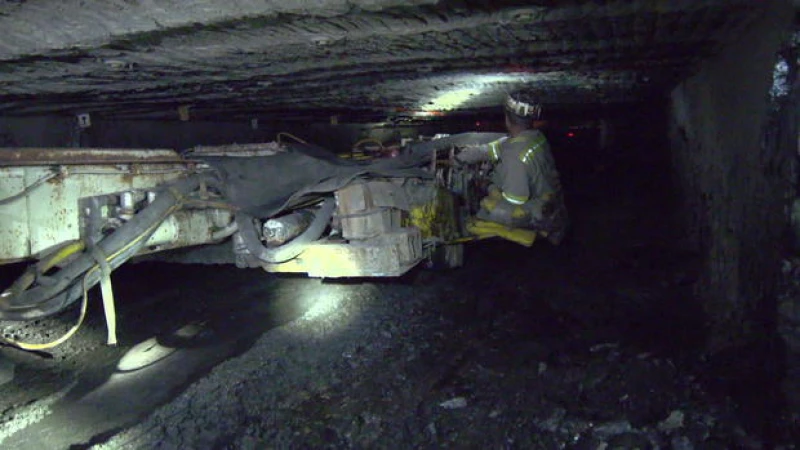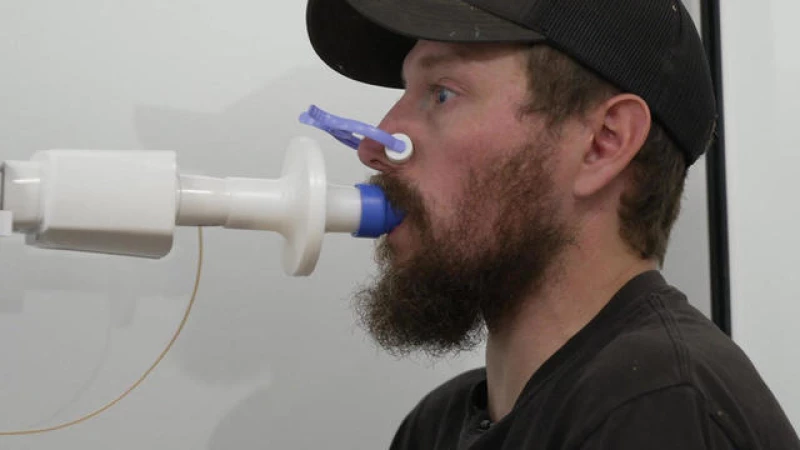Small Town Football: Oak Hill Red Devils vs Buckhannon Buccaneers
West Virginia, October. Friday night football. The Oak Hill Red Devils are hosting the Buckhannon Buccaneers. In small town America, Friday night football is a big deal.
Zach Davis, head coach for the Buccaneers, shared his perspective on the future of the area's young people: "Our kids, some are going to pursue higher education and eventually enter professional careers. Many of them will choose to work as blue-collar workers, whether it's at Walmart, a local business, or a convenience store."
"I couldn't help but notice that you didn't mention the mines," pointed out Koppel. "This region used to be known for its coal mining."
"That's true," replied Davis. "Since I've been here, only a few of our kids have gone into the mines. It's not a popular career choice among them."
Coal Mining in Decline
Don Barrett spent 23 years in the coal mine. Twenty years ago, he said, half of the kids on the football field would have ended up in the mines. But now? "Today, no chance of going in the coal mine," Barrett said. "I graduated high school on a Friday; Monday morning I was in a coal mine. My dad worked the coal mine, my granddad worked the coal mine, my brothers work the coal mine. Still is coal country, but not like it used to be."
Back then, he said, "Everybody was working, there was jobs everywhere. People were buying new homes, new cars. Life was good!"
That was the upside. Mining, of course, was always a dangerous job, and one in every five miners has for years ended up with black lung. "Black lung is a bad disease," said Barrett. "I have problems with breathing. You have coughing, you just suffer where you can't do the things that you used to do."
At the New River Health clinic, Kevin Weikle is taking a pulmonary function test; it identifies just how badly-impaired his lungs have become. The test confirms what he and respiratory therapist Lisa Emery already know: Kevin's black lung is so severe that he can no longer work in the mines.
What's different about Kevin is his age. Used to be, black lung didn't force a man out of the mines until he was in his late fifties or early sixties. Kevin is just 34.
Kevin, a former coal miner, has spent nearly half of his life working underground. When he was 18 years old, he found himself making more money than he had ever imagined. In just six months, he earned $76,000 by working tirelessly, sometimes even sleeping in the parking lot to maximize his hours. "I was told that I'd break myself long before I broke the company, so I could work as much as I wanted to!" he recalled.
With his newfound wealth, Kevin's first purchase was a brand-new F-250 diesel truck. He had grown up with very little, so the sudden influx of money was a dream come true. "Yeah, those were the good days," he said nostalgically.
However, life took a serious turn when Kevin became a father. "Then, you look at stuff different," he admitted. "You really realize the dangers, when you have something to live for, instead of just yourself. ... It's something that you expect to get when you're old, not 34."

Unfortunately, Kevin now suffers from what he calls "complicated black lung." His lungs are deteriorating rapidly, turning into rock. His case is not unique, as many young miners have been seeking medical help at the clinic. "Our rates of black lung in Central Appalachia are skyrocketing," said Emery, a healthcare professional.
The increase in black lung cases can be attributed to the higher exposure levels to silica dust that miners face. In order to reach the coal, miners now have to drill through more rock, resulting in finer and smaller rock dust that is even more damaging to the lungs than coal dust.
New Rule Proposed to Lower Miners' Exposure to Respirable Crystalline Silica
The Mine Safety and Health Administration, or MSHA, has proposed a new rule that would lower miners' exposure to respirable crystalline silica. It's a rule that needs congressional approval, but still faces Republican opposition.
"Sunday Morning" contacted several mining trade associations; all declined the opportunity to comment.

William "Bolts" Willis retired from the coal industry years ago, but he's still in the union; in fact, he's president of United Mine Workers Local 8843. He told Koppel, "We've already got the limits for black lung coal dust. This is silica dust, which has been there, present, all the time, and it cuts your lungs."
But the proposed rule, he says, may change nothing: "It may not, because there's not any teeth in what they're doing to make the companies comply with this."
"Roscoe" (not his real name) is a 34-year-old working coal miner who fears that he already has black lung. He contends that the mines routinely break the rules, and that if his real name came out, he's probably never have a job in the coal industry again.
"Coal mining isn't a bad job," he said. "I do love coal mining, but it doesn't have to be the way it is."
Roscoe provides insight into the procedures when an inspector visits a mine property. He explains that everyone is meticulous in following the rules and regulations. As soon as an inspector arrives on the property, the underground dispatcher immediately alerts all sections to ensure compliance. By the time the inspector reaches a specific section, everything is in order.
How long has this been happening? "This has been going on ever since I started working in the coal mine," Roscoe reveals. "The coal companies continuously face stricter dust and ventilation laws, hoping to address the issue of black lung disease. However, these laws would be effective if the companies consistently followed them and prioritized the well-being of their workers, rather than only when an inspector is present on the site."
"The only language mining companies understand is money," states Sam Petsonk, a lawyer representing miners in their legal battles for black lung benefits. "In the region where I practice law, we are witnessing a concerning trend of young miners, some in their 30s, suffering from severe lung damage caused by excessive exposure to rock dust. This is a crisis, as we have never seen so many young miners falling seriously ill after such short periods of exposure."
Koppel inquires, "So, you have been advocating for better regulations for years, and now you finally have them."
"Unfortunately, the rule lacks any significant enforcement mechanism," said an expert. "Before the rule is finalized, the Department of Labor must add significant enforcement mechanisms and specified monetary penalties for violating this rule. Or else, unfortunately, we have no reason to expect that the rate of black lung and silicosis will decline in this country."
An individual explained that a dust pump is used to measure the dust in the air, taking in that dust and trapping it in a filter. But, he said, the mines stack the deck when it comes to testing for air quality. "Company pumps, you would keep them in clean air, to make sure that they passed," he said.
"So really, what the inspectors were seeing was not a normal shift?" someone asked. "If the inspectors had actually seen what the real reading was, what would the difference have been?"
"Significant!" the individual laughed.
"And what would that have meant?"
"A lot of changes, I mean, in ventilation. They'd up the air required on each machine. It would've been more expensive. And a great loss of production."
"You think that happens a lot?"
"I know it does," the individual replied. "Anybody says it don't is lying."
The disease, as the individual knows, is not reversible. His black lung is progressing: "It will progress whether I'm in the dust or not. It's still gonna grow and lead to probably a lung transplant at some point in time. If I'm lucky."
And the very considerable expense of a lung transplant is only part of the problem. There are wait lists and limited locations where lung transplants are performed, which can mean moving entire families for months at a time.
Television programs don't dwell much on what comes next: the unexpected expenses, the likely relocation, the shifting responsibilities. Kevin and his wife, Megan, have four young children. What lies ahead is daunting for all of them. She said, "It's been really depressing."

Koppel asked, "All of a sudden, you got a lot more responsibility than you ever thought you were gonna have?"
"Yup, lot of stress," she replied.
The coal company laid it out for Kevin Weikle half a lifetime ago: he'd break himself before he broke the company. And that's pretty much how it is.
For more info:
- New River Health clinics
- United Mine Workers Local 8843
- Respirable Crystalline Silica: Notice of Proposed Rulemaking (Mine Safety and Health Administration)
Story produced by Sari Aviv. Editor: Ed Givnish.







